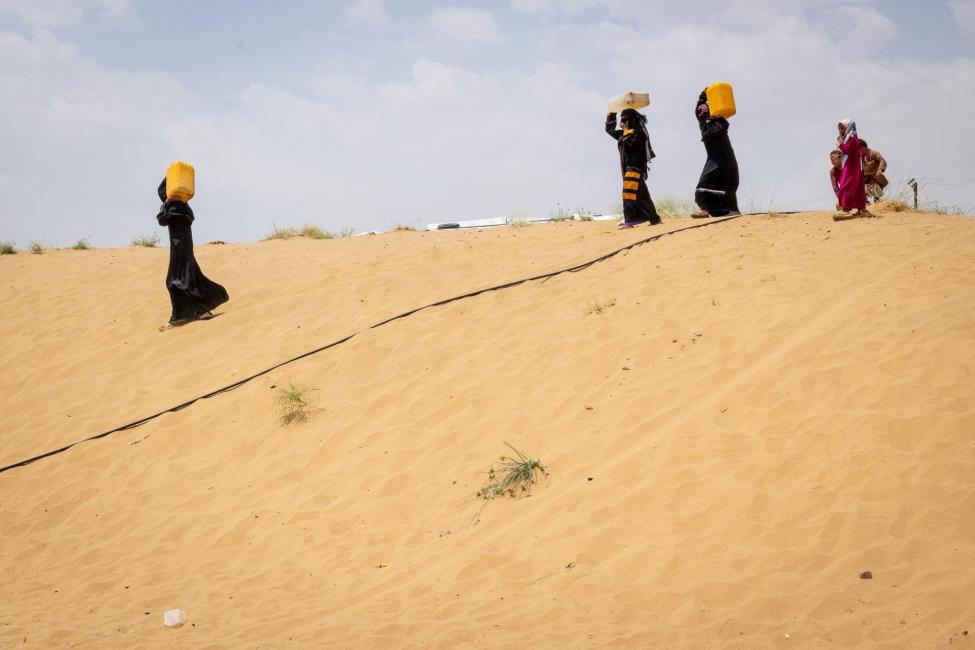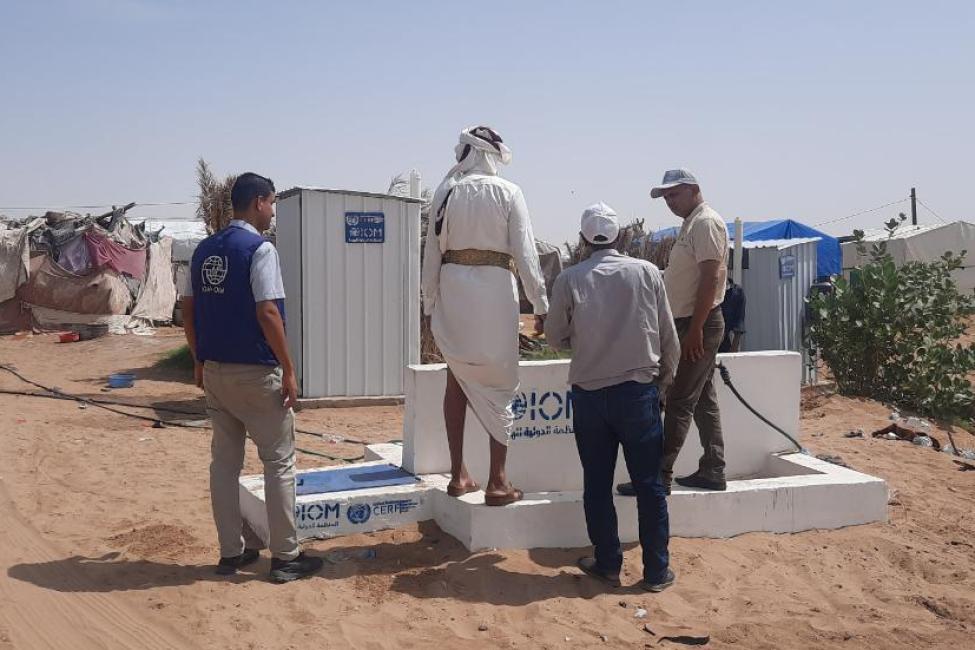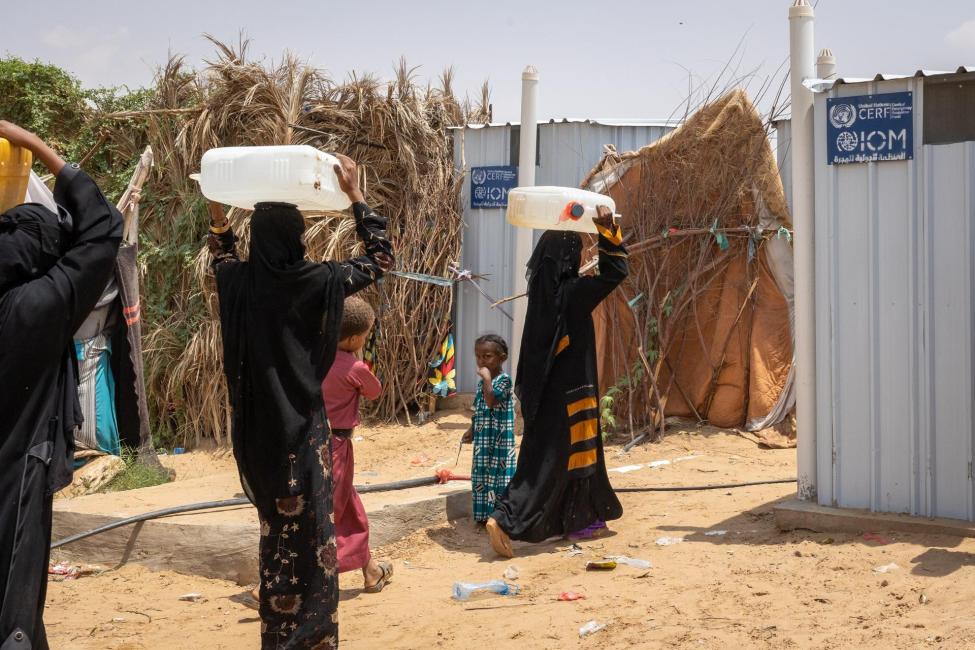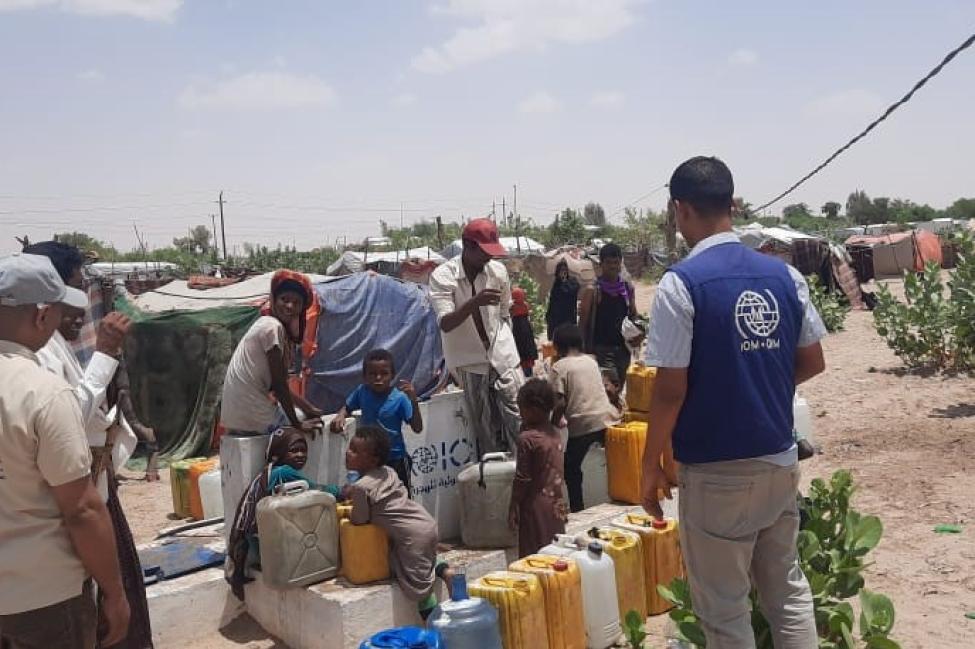-
Who We Are
WHO WE AREIOM is the leading inter-governmental organization promoting humane and orderly migration for the benefit of all, with presence in over 100 countries. IOM has had a presence in Yemen since 1994.
About
About
IOM Global
IOM Global
-
Our Work
Our WorkAs the leading inter-governmental organization promoting humane and orderly migration, IOM plays a key role to support the achievement of the 2030 Agenda through different areas of intervention that connect both humanitarian assistance and sustainable development. Throughout Yemen, IOM supports vulnerable groups including displaced people, conflict affected communities and migrants.
Cross-cutting (Global)
Cross-cutting (Global)
- Data and Resources
- Take Action
- 2030 Agenda
Ma’rib – For years Hasna has not been able to go out at night alone. When night fell, she used to fear she would be attacked by animals or even harassed by someone when she needed to step outside to collect water or use the washroom.
The 40-year-old once lived a decent life in her home in Al Jawf Governorate with her husband, Mojahed, and their nine children. They had to give up everything when the clashes broke out three years ago and they had to flee to Al Shabwan displacement site in Ma’rib.
Like many other camps, Al Shabwan site has not been connected to the general sanitation grid for years. The camp’s rough terrain and the high expenses of trucking water prevented Hasna’s family from regularly accessing water.
After experiencing displacement, women are often left alone to run the household while the men go out to find new sources of income. Women and children must bear the burden of collecting water, which prevents many children from going to school.
“For years, the only source of water we had was a well near the camp that all displaced families would connect to with a hose to supply their homes with water,” explained Hasna.
“But those old houses were worn out and most of the water leaked, so the borehole owner banned us from using those hoses and asked us to use jerrycans instead to collect water,” added Mojahed, Hasna’s husband.
This left their family with no choice but to walk hundreds of metres a day in the hot sun to the nearest borehole to collect what little water they could manage to carry. It was never enough to sustain the family of 11.
“Drinking water from the well for over two years also brought diseases to many displaced families. The sand in the water gave me kidney stones. Many others suffered from various health problems,” said Hasna.
These burdens facing families in Al Shabwan are now being alleviated by the International Organization for Migration (IOM) with a water point system that allows fresh and clean water to reach families closer to their homes.
“We now can easily access fresh water through new water tanks that are filled regularly. Finally, every household in the camp is receiving 20 litres of drinking water every day,” said Mojahed.
But having access to clean and sufficient water is not the only improvement to their lives.
“Women used to be reluctant to eat or drink during the day because they knew they would have to use latrines that were far away from their shelters,” said Joma’a, Mojahed’s cousin who lives in the same site.
Most displaced people, especially women, were also not able to take a shower during the day because of a lack of private bathrooms.
“Men would have to go with women to the valley to protect them while they found a hidden place to relieve themselves or bathe in the dark,” said Hasna adding that scorpions, snakes and insects also frequently came out at night.
New latrines and washrooms recently built for individual households have now removed this concern for these women. They are now well lit, next to their residences and easily accessible in a safer location.
The new water services and latrines constructed by IOM, with support from the UN Central Emergency Response Fund (CERF), have benefited nearly 140 families and 840 individuals in Al Shabwan site and others throughout Ma’rib.
The facilities have made a huge impact on the families’ lives, protecting them from harsh diseases while ensuring their safety and dignity.
“The available water services and latrines are crucial for the safety and privacy of displaced families, especially for women who usually suffer the most,” explained Aqeel, IOM’s WASH Field Assistant.
“We used to have to tie up blankets next to our shelters and have a relative watch out while we bathed. Taking a shower in private was once just a dream but now it’s an everyday reality,” concluded Mojahed’s mother.



